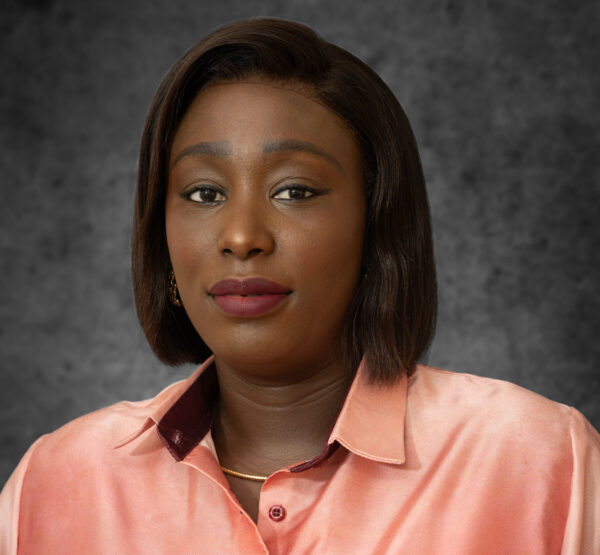On July 31, 2025, we will celebrate a new edition of the International Day of African Women. This day, more than just a symbolic ritual, is an opportunity to remind that Africa will not develop without its women, who represent more than 50% of our populations – and especially that it will only develop sustainably with them in leadership roles, both in society and in business, technology, finance, or agriculture.
But beyond speeches, an imperative emerges: to transform ambitions into strategies, and strategies into systems. For this, we must dare to combine three dimensions that are often compartmentalized: technical expertise, strategic vision, and societal commitment.
The time of the builders has come. The African woman has always built. Today, she codes, leads, invests, structures. She continues to build. And her ambition is no longer limited to “succeeding in the system”: she wants to redefine this system.
In sub-Saharan Africa, women entrepreneurs fight every day to create viable, rooted, and responsible business models. They innovate in sectors as essential as agri-food, domestic energy, or urban logistics. And often, they do so without the tools, capital, or mentors available to their male counterparts.
And yet, they succeed. Contrary to popular belief, investing in women does not compromise financial performance – on the contrary. Studies show that companies founded by women generate twice as much revenue per dollar invested as those founded by men. Furthermore, organizations with mixed leadership teams are more likely to outperform their competitors.
We must align excellence and impact. I have had the opportunity to build my career in highly technical environments – telecoms, automotive, fintech – and to hold strategic leadership positions. This journey has taught me one thing: operational excellence and social impact are not antagonistic, they reinforce each other.
The experience of the first unicorn in Francophone Africa demonstrated this: by launching simple, affordable, and secure mobile financial services, it was possible not only to build a successful business but above all to enable millions of people to move from cash to the digital economy.
This model, born from the convergence of product vision, smart regulation, and field engagement, can – and must – be applied elsewhere.
For an intentional and inclusive African capitalism. On this Day of African Women, I express a wish: that Francophone Africa stops opposing social impact and economic growth. The future of the continent lies in intentional capitalism, driven by women and men who choose, from the conception of their projects, to make them instruments of inclusion.
This paradigm shift requires:
– Bold public policies, refocusing women’s entrepreneurship as a vector of economic growth;
– Structuring technical support, because ambition without expertise is short-lived;
– Access to patient and aligned capital, taking into account the specificities of the African context;
– Support ecosystems, such as the Women Investment Club (WIC), where I have the honor to contribute, which prove that a supportive network can transform individual trajectories into powerful collective engines.
My call to decision-makers: invest in women who build. It is no longer enough to pay tribute to African women one day a year. We must co-build with them, invest in their ideas, listen to their intuitions, strengthen their skills. Whether they are engineers, artisans, agripreneurs, or business leaders, they are already here. They do not ask to be saved. They ask to be considered more.
If we have the courage to support them, finance them, recognize them, then they will build a more equitable, resilient, audacious African future. For women, becoming a chairwoman of a board of directors or the National Assembly, an industry captain, or other should no longer be perceived as something exceptional or extraordinary.
Let’s dare differently. Doing business in Africa is no longer enough. It must be done with intention: to transform, include, elevate. This is the bet I made, and renew every day – in my roles, in my commitments, in my choices. Because Francophone Africa deserves meaningful growth. And this growth is here, before our eyes: by 2030, the region will have more than 160 million consumers with intermediate incomes, with an annual spending increase of over 5% (IFC).
But the real driving force is women. Officially or informally, they drive up to 70% of the African economy. According to the World Bank, closing the gender gap could add up to $2.5 trillion to the continent’s GDP by 2025. In other words: investing in women is not a militant act, it is a strategic choice. It is a business model.
The sustainable growth of Africa will not come from a compartmentalized vision. It emerges where engineering meets strategy, and where strategy embraces a committed social mission. The African woman is not a positive externality – she is the heart and condition of our economic future.
To all those who innovate in the shadows, who reconcile strategy and meaning, who dare to take risks and create for their community, I say: continue. Africa owes you more than tributes: it owes you a central place in shaping its future.
Bio Express of Stéphanie Sarr Dioh:
Senegalese leader in tech and finance, Stéphanie Sarr Dioh has over 20 years of experience between Africa and Europe. A specialist in digital products and a committed investor in equality, she sits on the governance committee of Women Investment Capital.
Among her accomplishments:
– Launch of 85 financial products in 7 markets (USD 4.6 billion in transactions);
– Support for women entrepreneurs in Senegal (agro, cosmetics, services);
– Implementation of the first electronic money service in Côte d’Ivoire;
– Pioneer of intuitive mobile interfaces in West Africa.


